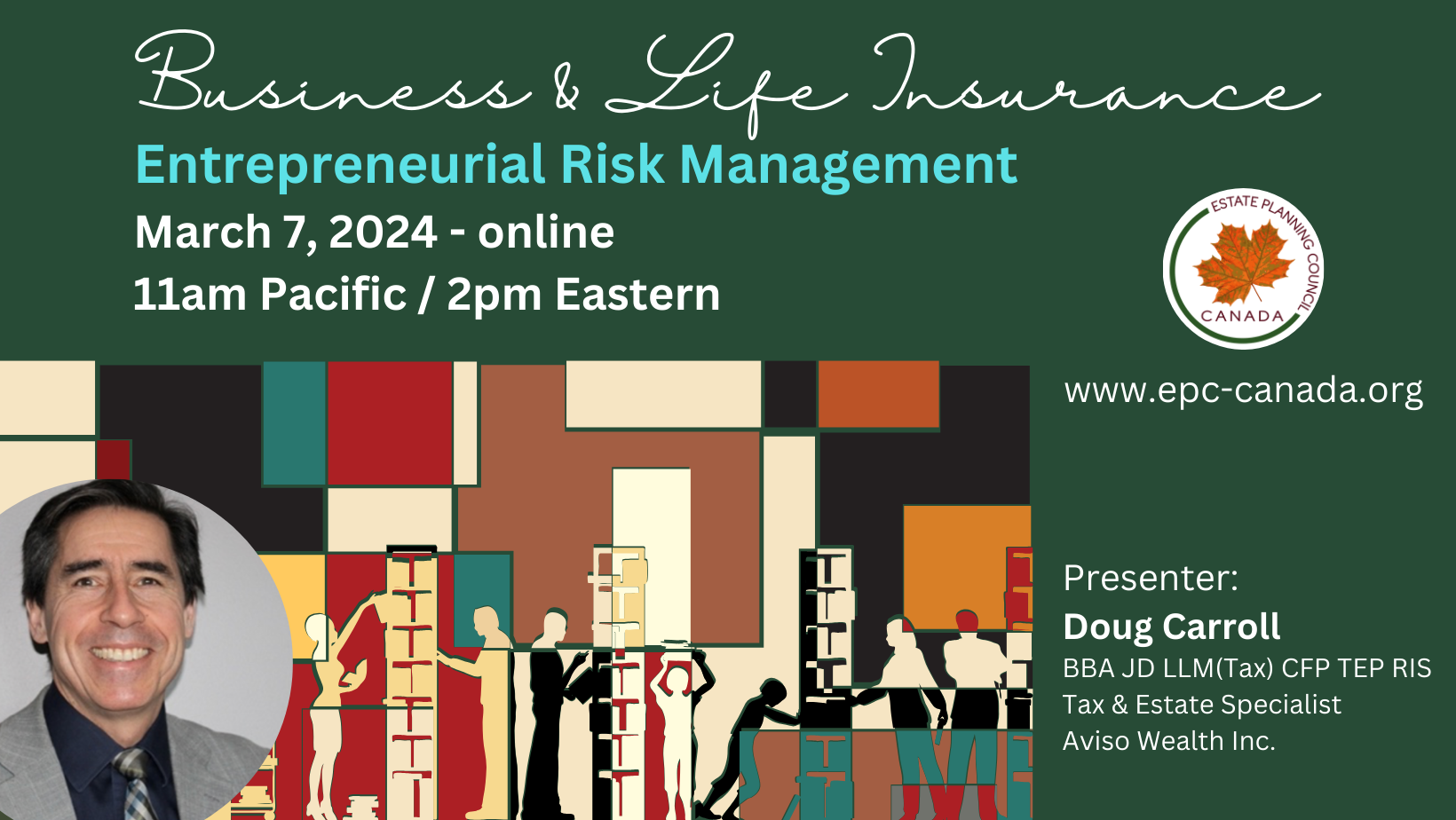Insurance is not a frequent conversation topic for most people. In its simplest elements, you pay premiums to an insurer, and it pays out the face value of the policy on a death. Premium payments are not generally tax- deductible, but proceeds are received tax-free. A business scenario adds a layer or two of complexity. In addition, you need to consider the cost-effectiveness of premium payments and the tax-efficiency of the proceeds payout for your client.

At a minimum, five questions have to be addressed in any insurance discussion between Advisors, including Accountants and Lawyers:
-
What purpose does this insurance policy serve? In insurance-speak, the ‘risk’ is that a death occurs, and the ‘peril’ is that some economic damage will result. So, what damages are you protecting against?
-
What duration is the insurance needed for? Put another way, at what point in time will there no longer be a peril/damage to be concerned with, or will it always be there?
-
Who should own the insurance? This is who pays the premiums. In a personal situation, you may own on yourself, or spouses on each other, or parents on children – and there can be more variations. For a business, particularly when run through a corporation, there are at least as many considerations, including whether to own from within the business/corporation, or outside in personal hands.
-
Who should receive the proceeds? In some cases the recipient may be the owner, while in others it may be one or more named beneficiaries. In a business situation (again where a corporation may be involved), there can be many steps involved, requiring coordination with other personal and business documents, including trusts, Wills, corporate resolutions and shareholder agreements.
-
Finally, what amount of coverage is appropriate? This brings it full circle to the economic exchange you have with the insurer. Having asked and answered the preceding questions, you are now ready to turn to quantification, and affordability.
---
Doug Carroll is a Tax & Estate Specialist with Aviso Wealth, a national, integrated financial services company serving the wealth management needs of virtually all of Canada’s credit unions, as well as a range of independent financial organizations.
In his role, Doug researches case law, legislation and financial media, in order to prepare support material for financial advisors and their clients. Through published articles, financial industry speaking engagements, public seminars and in-person consultations, he assists advisors and their clients who have complex needs, particularly business owners.
He has held roles in the life insurance and investment industry at both the supplier and distributor levels. Combined with his hands-on experience running an estate planning law practice, he’s able to offer practical insights in personal wealth matters.
Apart from his legal training, Doug began his working life as a professional conference planner, and has organized and spoken at hundreds of events since the 1980’s on financial planning matters, particularly on tax-informed insurance and investment issues.
He contributes to and has been quoted in financial industry media including Globe & Mail, National Post, Toronto Star, Montreal Gazette, BNN, CTV, Global TV, TVOntario, 680News, Advisor.ca, Advisor’s Edge Reports, Investment & Insurance Journal, Morningstar, Investment Executive, Advocis Forum, Sirius XM Radio, Daily Hive, & Yahoo Finance.
Doug holds a Bachelor’s degree in business administration (BBA), a juris doctor (JD, the equivalent of LLB), and Master of Laws (LLM) with a specialization in taxation. He is also a Trust and Estate Practitioner (TEP) and a Certified Financial Planner (CFP), and previously sat on the Board of Directors of the Financial Planning Standards Council, the overseeing body for CFP professionals in Canada.
---
Registration $30
No charge for Estate Planning Council of Canada Members
Guests are welcome - this event is for Professional Advisors only.
Membership Information